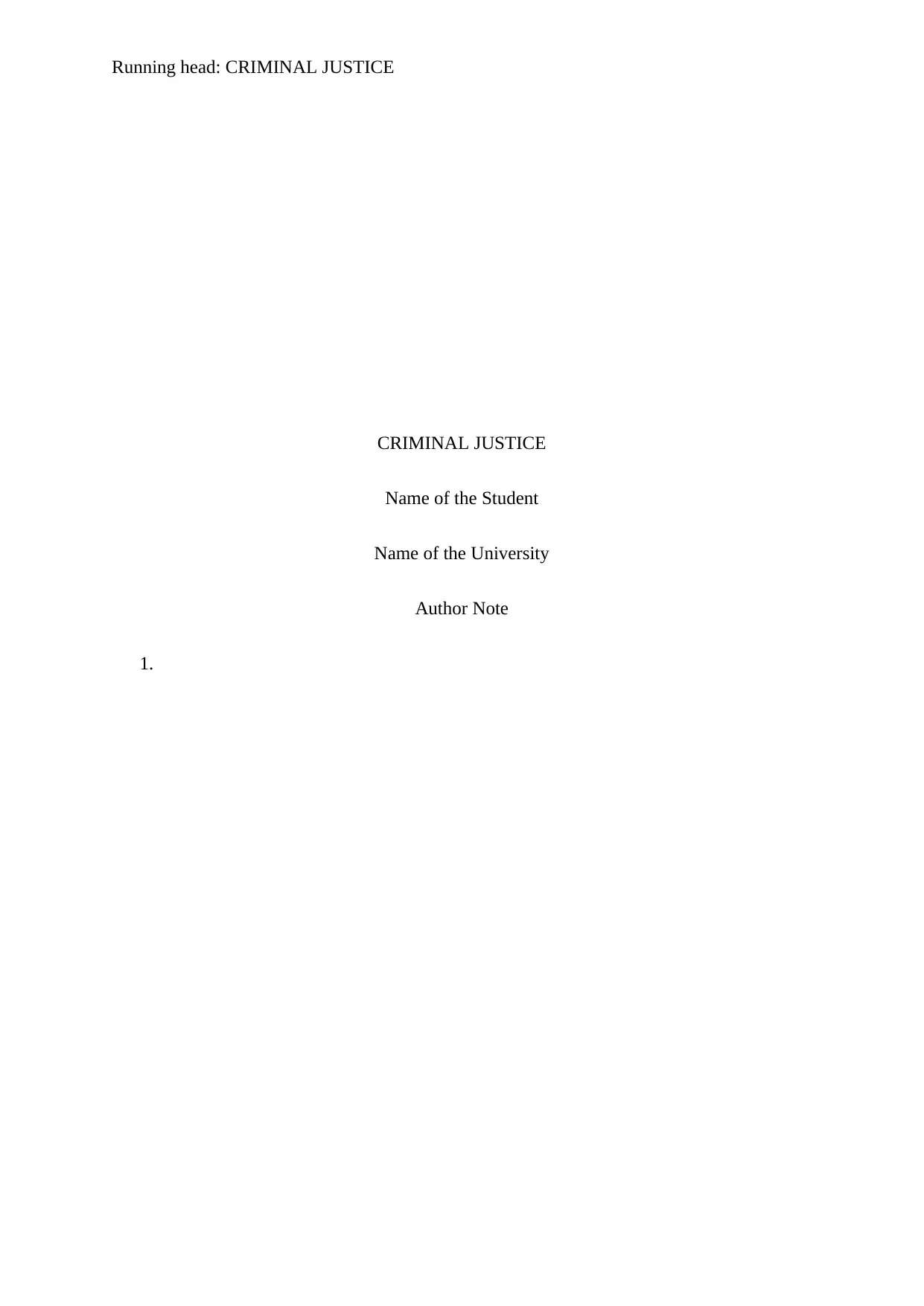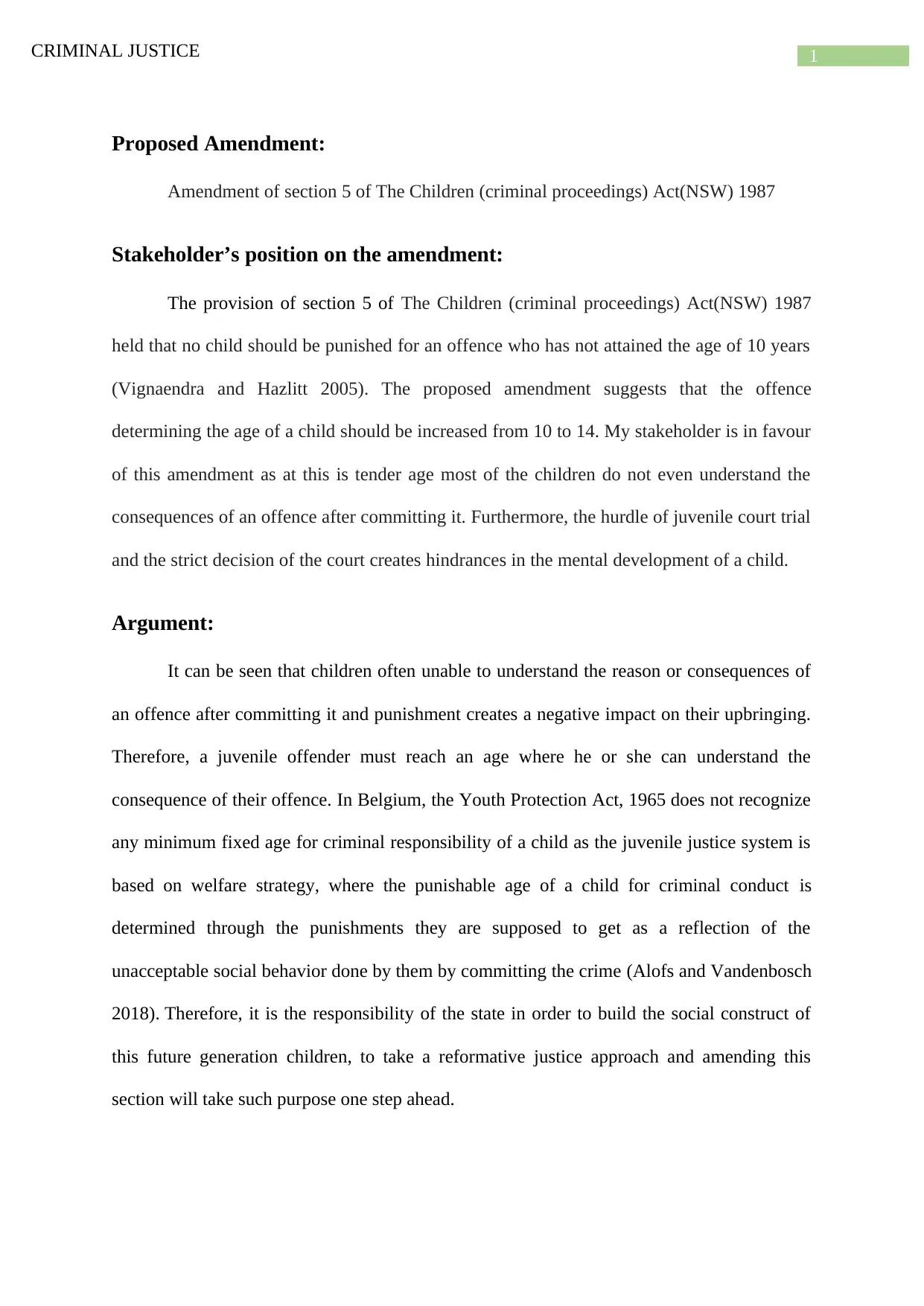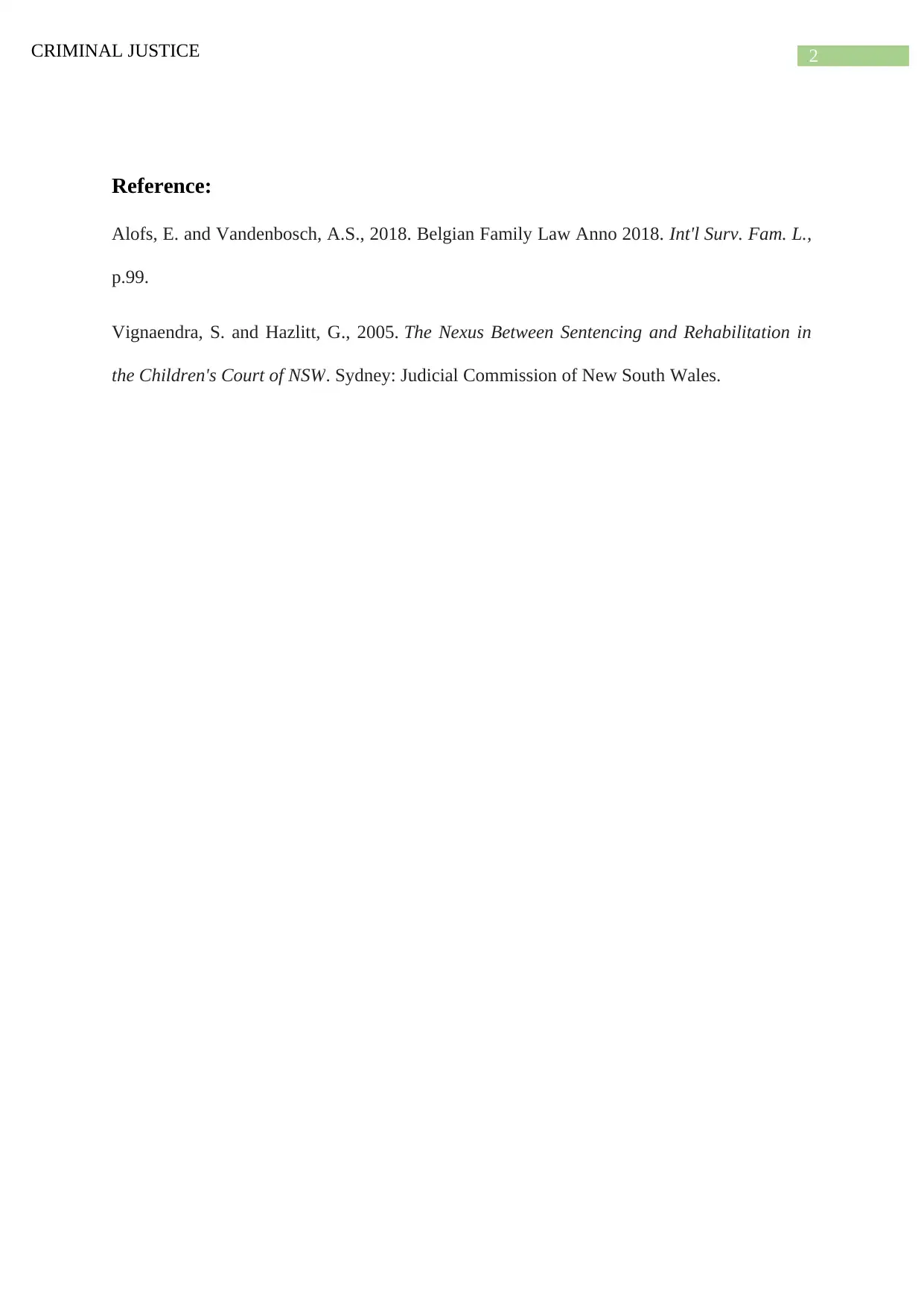Criminal Justice Report: Analysis of Act Section 5 Amendment Proposal
VerifiedAdded on 2022/09/14
|3
|397
|20
Report
AI Summary
This report analyzes a proposed amendment to Section 5 of the Children (Criminal Proceedings) Act (NSW) 1987, which concerns the age of criminal responsibility. The report focuses on increasing the age from 10 to 14 years old. The author presents a stakeholder's perspective, supporting the amendment due to the potential negative impacts of juvenile court involvement on child development. The report references Belgian law, highlighting a welfare-based approach to juvenile justice. The argument emphasizes the need for a reformative justice approach, suggesting that the amendment aligns with the goal of building a positive social construct for future generations. The report provides a concise overview of the issue, the proposed change, and the reasoning behind it, supported by academic references.
1 out of 3









![[object Object]](/_next/static/media/star-bottom.7253800d.svg)